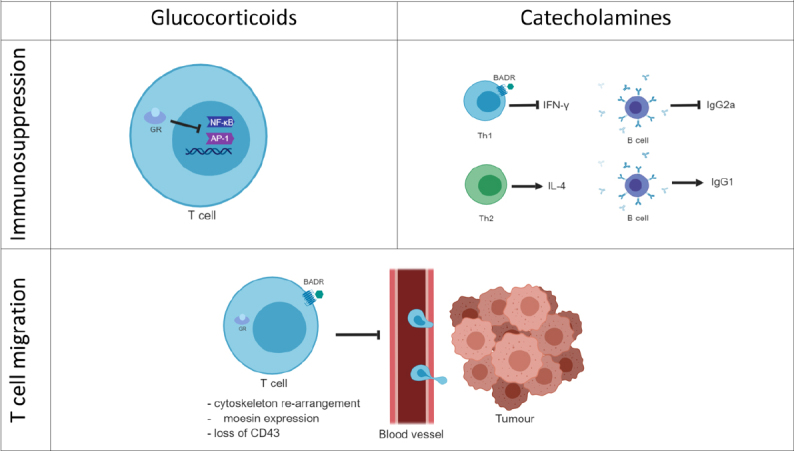Figure 4.

Stress hormone-mediated immune regulation. Glucocorticoids immune regulation is associated with the blockade of the pro-inflammatory gene expression. GCs bind the cytoplasmic glucocorticoid receptors (GRs) and translocate to the nucleus where they inhibit transcriptional factors such as NF-κB or AP-1 that regulate the expression of pro-inflammatory genes. Catecholamines can bind G-protein coupled adrenergic receptors on the membrane of immune T cells. The adrenergic signalling pathway blocks the production of the pro-inflammatory cytokine IFN-γ and consequently B cell production of IgG2a. On the contrary, β-adrenergic signalling is not thought to affect Th2 cells producing of IL-4 or B cells producing IgG1. Both GCs and the adrenergic hormones affect the T cell migration by regulating the T cell cytoskeleton and actin-binding proteins such as moesin. This leads to the hypothesis that stress hormones can have a role in the T cell trafficking into the tumour. Furthermore, stress hormones exposure correlates with the loss of the activation immune marker CD43.GCs: glucocorticoids; GRs: glucocorticoid receptors
